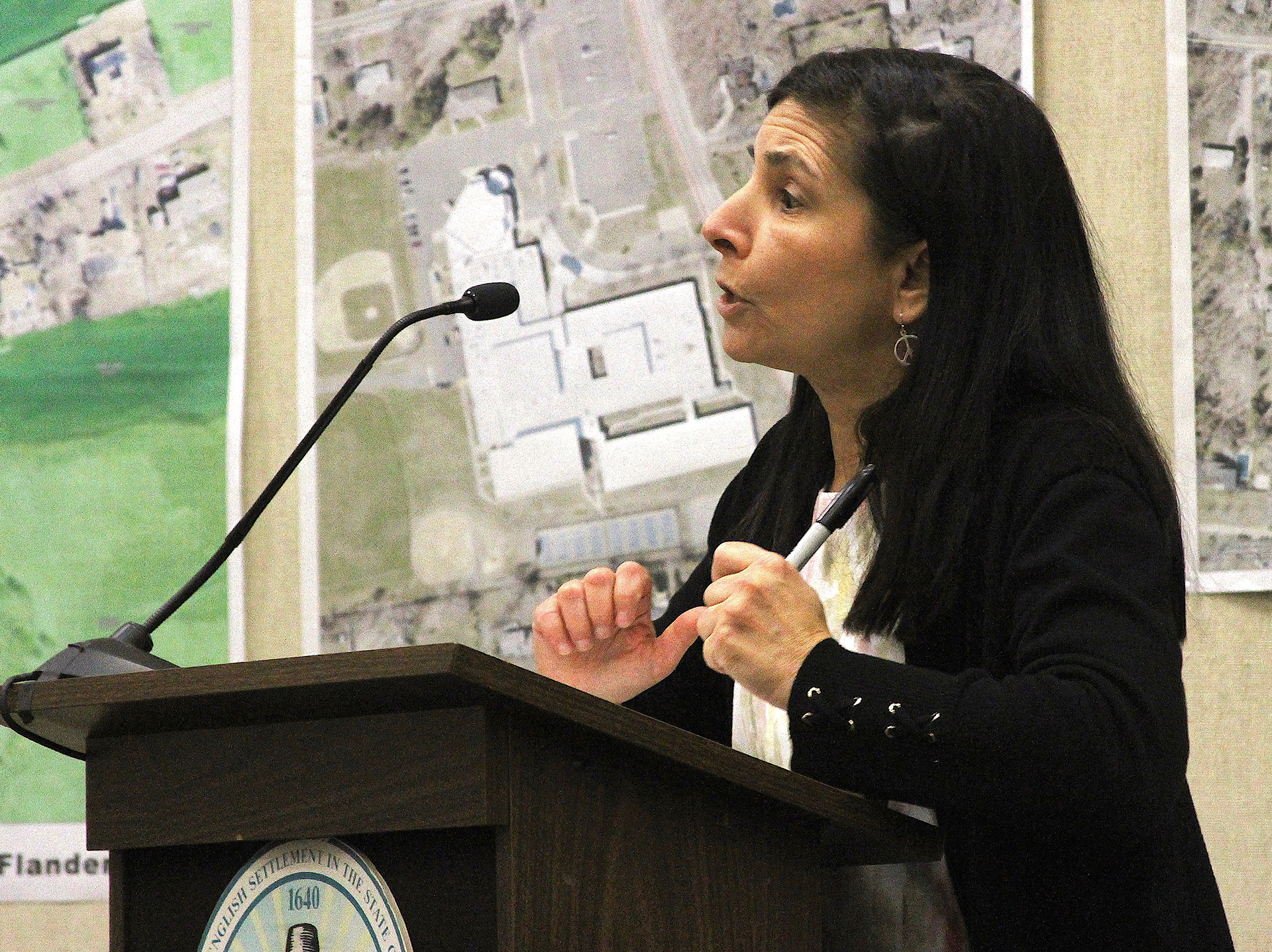Southampton Purchases Bel-Aire Cove Motel

After months of debate and setbacks, the Southampton Town Board voted 4-1 to approve the purchase of Hampton Bays’ Bel-Aire Cove Motel and adopt an urban renewal plan for the parcel.
Community members came out one last time to voice opposition to the resolutions, siding with Councilwoman Christine Preston Scalera, the only “no” vote to the $1.06-million purchase April 9. Councilwoman Julie Lofstad and Councilman Tommy John Schiavoni sided with Supervisor Jay Schneiderman, the initiator of the proposal to raze the property and rebuild luxury townhouses or condominiums, citing the need to boost the area’s economy through tourism.
“I believe communities need balance, and right now Hampton Bays is out of balance,” said Lofstad, who lives in the hamlet. “We have all these great things but we don’t have the amount of seasonal homeowners or room for visitors to stay in our town and go to these great places. Our businesses need business.”
The councilwoman rattled off a list of local hot spots like Good Ground Park, Red Creek Park, Ponquogue Beach, and the recently-renovated Tiana Beach Lifesaving Station, which is being turned into a museum, along with restaurants and roads with waterfront access, three of which — Gardener’s Lane, Foster Road, and Penny Lane — are less than half a mile from the motel. She said after hearing residents cries to increase the tax base, she thinks a revitalization plan would make visiting the area more desirable.
But residents like Gayle Lombardi, who see the town pitching the project as some sort of “panacea,” or cure-all, call the board members’ reasonings “ancillary anecdotal benefits.”
“You have not addressed the risks associated with purchasing this property for redevelopment,” Lombardi said. “You think that a one-acre, $1-million property that is basically marshland will bring in tourism, correct main street, raise our property values, correct the school taxes. It’s ridiculous. Move forward with your own money. You do not put taxpayer money at risk.”
For the last six months, Lombardi and fellow community members like Maria Hults of the Hampton Bays Civic Association and Ray D’Angelo, chairman of the Hampton Bays Citizens Advisory Committee, have come to meetings calling the Community Preservation Fund to be used to purchase the property. They threw out suggestions from razing the building and letting the parcel return to its natural state, to turning it into a park, to creating a kayak launch to enter Penny Pond. Preston Scalera also pushed for CPF purchase, but received zero support from her colleagues, who voted down her resolution back in January.
“I just think that using this amount of money in a speculative way is not the right thing to do,” Preston Scalera said, turning to Schneiderman. “And I don’t understand why you’ve dug your heels on this despite a lot of opposition. I think the community is very anxious to have something done, and I can understand that, but I don’t believe that this is the way to go. I sincerely hope that I’m wrong.”
The councilwoman was also concerned about the future of the property. Specifically, it being able to be used for something other than the current board’s intended purpose. While it would require a public hearing and resolution, Town Attorney James Burke said it can be done. She was also fearful of the current motel residents being displaced, to which Burke responded the owner of the property has agreed assist in their relocation.
Schneiderman spoke on another worry of the public’s, which has called the parcel adjacent to Shinnecock Bay “environmentally sensitive,” saying the “best possible” innovative/alternative wastewater treatment system will be located as far away from the water as possible.
“It’s going to be an improvement in every possible way that I can see,” the supervisor said. “If you want to build a tourist economy, buying and tearing down hotels is not the way to go. And I think the funds will be returned to the town in a very short amount of time.”
Still, D’Angelo called the claims “optimistically arrogant,” and Hults called the purchase “premature.”
“The town being involved in commercial real estate purchases should be an option of last resort, and open market should prevail whenever possible,” Hults said. “The property was allowed to become blighted due to inaction on the part of the town in enforcing code violations, thereby endangering both the inhabitants, due to safety violations, and the community, due to wastewater pollution. Without a site plan, it is even questionable what will fit. You were elected to represent the community. Work with the community to forge a template that is welcome.”
desiree@indyeastend.com



